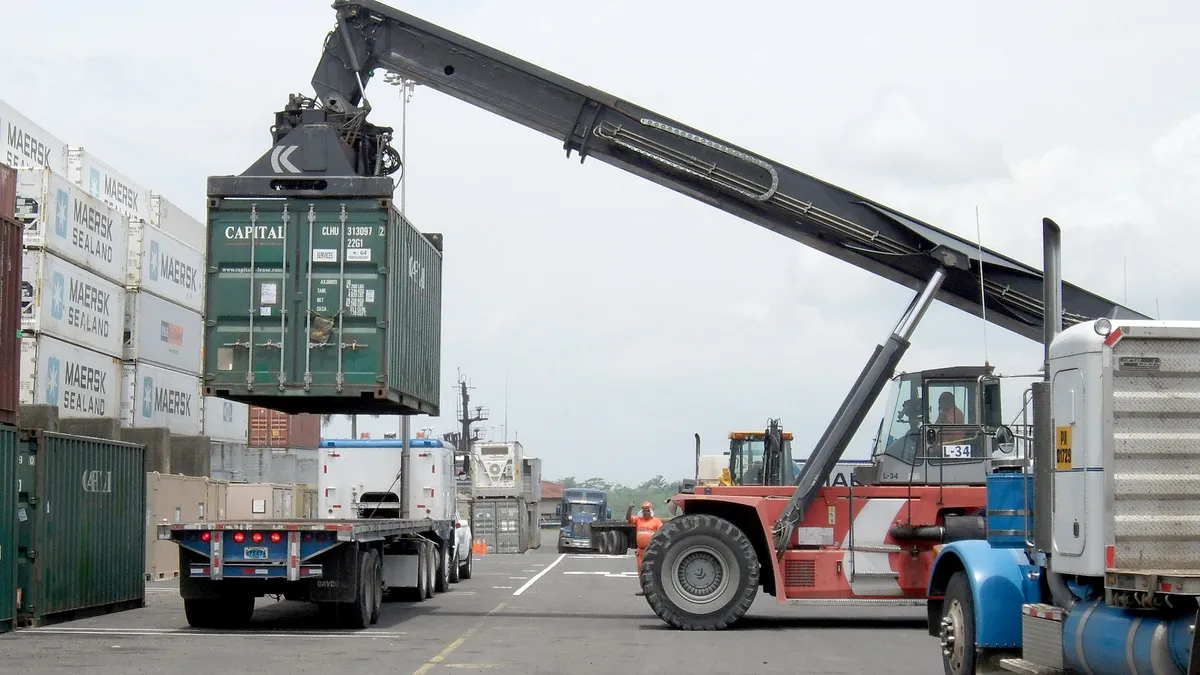Dive Brief:
- A lawsuit filed against XPO Logistics and its drayage subsidiary in Southern California, XPO Logistics Cartage, alleges the company willingly used its independent-contractor model to deprive truckers of pay.
- The class-action suit includes six charges against XPO, which includes a failure to: pay minimum wage, pay for missed meal and rest periods, reimburse business expenses, provide itemized wage statements, among others. The charges assume the workers should be classified as employees, not contractors.
- XPO Logistics told The Wall Street Journal and Trucks.com it had not yet reviewed the lawsuit, but the company "know(s) the vast majority of port drivers want to maintain their independence as contractors. We’ll continue to defend this business model."
Dive Insight:
The battle for the future of trucking business models is roaring in California, as drivers, unions and city representatives team up to claim owner-operators are faced with excessive costs, but effectively serve as employees without benefits.
The West Coast state is friendly territory for workers waging such a battle. Less than a year ago, four truck drivers won a legal battle against XPO Cartage with similar concerns, according to Trucks.com. (XPO gave Trucks.com a similar statement then, adding it planned to appeal the ruling). And in the last two months, the issue has become political as city representatives from Los Angeles and Long Beach use their stump to join the fight.
But despite the added voices, the issue remains legally controversial. For years, wage misclassification claims have plagued a justice system unwilling to clearly differentiate the lines between contractor and employee.
Meanwhile, the trucking industry is largely built on this model. In theory, truckers who are contractors can leave at any time to join a competitor. Market dynamics should force wages to a high enough level where the benefits lost by not being employees are paid through a competitive advantage.
In practice, worker-employer relations are never so simple and often rely on legal frameworks to adjudicate grievances. In this class-action case, such grievances are largely based on unpaid time and expenses:
"Under the (independent contractor operating contract), Drivers are made to assume the XPO Defendants' responsibilities to pay operational expenses, such as various administrative fees, fees for the use of tablet computers that Drivers are compelled to use on their routes by the XPO Defendants, and the costs of workers' compensational/occupational accident insurance for the Drivers, in clear violation of the law," the filing states.
"While the (contract) deceptively pays lip service to Drivers' ostensible independence in determining their manner and means of work, in actual practice, the XPO Defendants significantly control the details of the work performed by Drivers," it states. This "control" over the work and manner includes the time spent, unpaid, waiting in traffic, at the dock, at a warehouse or waiting for dispatch orders.
Payment and classification aside, the growing number of lawsuits point to a greater inefficiency in the trucking industry, at a point where time spent working is being more closely monitored by electronic logging devices. It may not be the business model that is at fault, but the way in which truckers' payment and time is handled.














